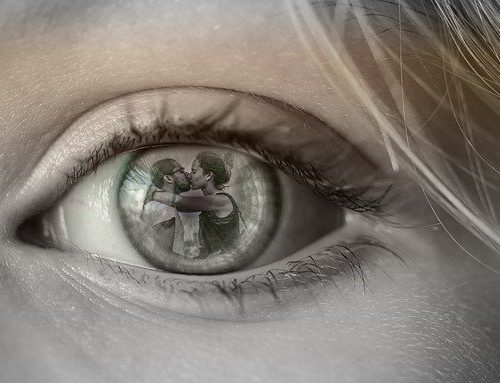 We may not listen well out of self-interest. Literally, interest in ourselves. When is he going to shut up so I can say what I think?
We may not listen well out of self-interest. Literally, interest in ourselves. When is he going to shut up so I can say what I think?
Maybe we don’t listen because we discount what the other person has to say on this. Borrrrring.
Almost certainly, we don’t listen well because we haven’t been trained in how to listen effectively. We hear without effort, but listening takes some thought and practice. It’s also one of the most generous, flattering skills you can master in your relationship. Wow (and disarm) your beloved with some of these practices:
1. Set the scene. Show that conversation with your partner is valuable to you. Turn off the TV. Take it up a notch and turn off your cell. Invite him to sit in a quiet, private and comfortable place. Sit facing him, close enough to hear comfortably but not crowding him; some discussions need a little space. Of course not every conversation needs to be this formal, but it will do your relationship a lot of good if you and your partner make a conscious date just to talk at least once a week.
2. Shut up and listen. You can’t really listen if you’re just waiting for your chance to talk, fascinating as your comments will be. Put that part of your brain on hold. Make eye contact. Hear each word. Suspend judgment; this is how the most important person in the world thinks and feels. It’s valuable information. Soak it in. Nod or “hmmm” to reassure her you haven’t fallen asleep with your eyes open.
3. Pay attention to what’s not said. One frequently quoted statistic is that only 7 percent of our communication is verbal. The other 93 percent is composed of movement, tone of voice, pregnant pauses, posture, gestures, etc. It’s actually hard to quantify an exact percentage, but it’s generally accepted that words comprise only a small piece of communication. Hear what your partner is saying, of course, but pay attention to what her body and timbre are also saying.
4. Ask questions, repeat what you heard. You may believe you understand exactly what your partner is communicating, but it’s smart to make sure. Asking for expansion of a point lets him know that you’re serious about getting it right and gives him a chance to say something that might surprise you. When you think you have it, say so. “What I heard you say is …” Remember, this is a chance for clarification, not taking a jab when you disagree.
5. Open your heart. As you listen, try to picture (literally, try to form a picture in your mind) what your partner is expressing. Is she remembering a past hurt that still aches? Is she trying to share her excitement about a change that will affect you both? Has she got a completely different perspective than you do on an important issue in your lives? Take it in and save this new knowledge to help you understand your relationship.
If you are willing to really do this, your relationship will become deeper and richer. If your partner appreciates what you’ve given and returns the favor, you will have the great satisfaction of being really heard on a level you may not have experienced before.
Click here for more information on Couples Therapy.




